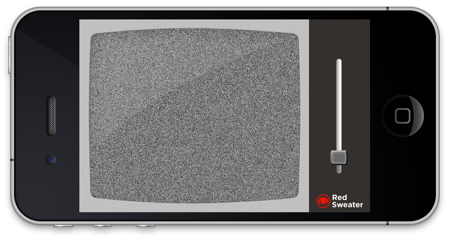The End Of Advertising
February 29th, 2012Dave Winer writes about the intermingling of of tech and advertising (via Brent Simmons):
The tech industry has been absorbed by the ad industry, and vice versa.
However, there is, imho, still room for a tech industry that is not merged with the ad industry.
I’ll take this a step further: advertising is on the way out. Technology loathes a middle-man, and advertising as an industry is the king of all middle-men. The purpose of advertising is to connect customers with companies, so as to facilitate a transfer of money in exchange for goods or services. As time goes by, customers and companies will be more and more capable of achieving this on their own.
In the history of the world so far, there has been considerable opportunity for advertisers to misguide customers, and to lure their money toward products or services that can be framed as perfect for them, even when they are not. That’s the art and the holy grail of advertising. But going forward, technology will offer customers and companies the tools to connect effortlessly, optimizing for compatibility without the help of the bogus, outdated advertising system.
Most of us base purchasing decisions on vague hunches derived from a mix of advertising influences, word-of-mouth, and the relative trendiness of a product. But more and more as customers we are cutting out the advertising middle-man, in favor of systems based on education and trust. Amazon is a good example of this. With the notable exception of their Kindle line of products, they have little concern about which products their customers buy. It only matters that they buy things, and that they buy things often. They provide detailed product information, and allow honest, often scathing reviews. The goal is for customers to make self-serving decisions. In this case, defying the advertisers’ best interests is in Amazon’s best interest as well.
Extrapolate the technology-assisted consumption process out over the next 10, 50, 100 years, and I have a hard time imagining a meaningful role for conventional advertising. If I search Google for “lawnmower,” it’s not interesting that some tractor company has paid Google for the privilege of putting their brand’s information at the top of the list. At some point in the future, customers will assume that companies who choose to advertise conventionally are afraid of the outcome when consulting various self-empowering resources. Where am I more likely to search for “lawnmower?” If I want to know what a lawnmower is, Google. If I want to know which lawnmower to buy? Amazon, or another site that strives to empower customers, not advertisers.
I do worry about what happens to some of our beloved, advertising-driven services. We’ve all grown accustomed to the subsidization of news reporting and analysis. In recent decades, advertising has crept further into our lives, even subsidizing municipal infrastructures such as public transit. What impact will the end of advertising have on these important services?
In the old world, technology for connecting customers directly to companies did not exist, so companies were satisfied in buying advertising. It is tool that serves to expose customers to the concept of a product, and to crudely attempt to educate them about the suitability of the product for their purposes.
In the new world, mass-exposure will be replaced by social networking, and education will be not only replaced by, but massively bolstered by trusted systems such as Amazon’s review database, Consumer Reports, and other much better stuff that is presumably coming in the future. Presumably? It has to be coming, and it has to be better, because everything’s riding on it.
Everything’s riding on it because this is the salvation for current advertising-subsidized industries. They will shift from being exposure-focused, to education-focused. Amazon, Apple, and many others already offer affiliate systems that reward anybody who can produce a sale. The old way to produce a sale is by blasting customers with unwanted information until you happen upon something that sticks. The new way is to provide customers with a trustworthy, opt-in system for determining what’s best for the customer. To stay alive in the changing world, these subsidized industries will change their business plans, or go out of business.
Earlier today, before I even followed Brent’s link to Dave’s piece, I read this short, thought-provoking essay, allegedly by the graffiti artist Banksy. Here is an excerpt that I think is pertinent to my predictions here:
They have access to the most sophisticated technology the world has ever seen and they bully you with it. They are The Advertisers and they are laughing at you.
…
You owe the companies nothing. Less than nothing, you especially don’t owe them any courtesy. They owe you. They have re-arranged the world to put themselves in front of you. They never asked for your permission, don’t even start asking for theirs.
As a businessman who is dedicated to my own commercial success, I embrace the challenge of getting the word out to potential customers. I will shout my message from the rooftops to anybody who will listen. But only to those who will listen. I don’t want to annoy, interrupt, cajole, or appeal to a customer’s feelings of inferiority. I don’t want a customer to choose my product over a competitor’s unless it’s better for them. In short: I want a future without advertising, where my products sell themselves through word-of-mouth and through trusted systems that educate customers about making the right choice for them. Not what’s right for companies, and certainly, so long as they’re still around, not what’s right for advertisers.


